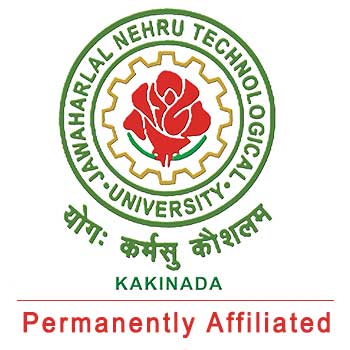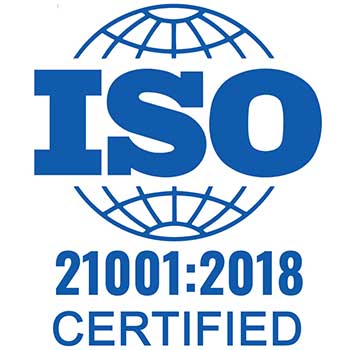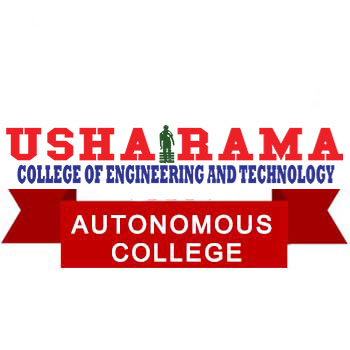Department of Electronics & Communication Engineering

ABOUT ECE DEPT
To impart value based technical education and train students to turn out full- fledged engineers in the field of Electronics & Communication Engineering with an overall background suitable for making a successful career either in Industry/Research or higher education i.e., from A.Y 2008-09 with an intake of 60 students. Presently, the intake of the ECE Department is 180 students. The department has faculty strength of 26 well qualified, experienced and dedicated Post graduates with Three Doctorates and some of them are pursuing PhD in different streams.
ECE Department has always been on a high growth path with strong committed faculty towards engineering education, who work with zeal and enthusiasm The Department motive is to provide a vibrant and optimum learning environment to the students in order to help them excel in today's competition globally. To keep in pace with the current technological trends, the department has established few centre of excellences to incorporate all advancements in collaboration with industries. This gives the students a hostile and pragmatic view of the present scenario of Electronics and Communication industry. The department encourages students into postgraduate studies and prepares them for leadership roles in research and development. Along with UG one M.Tech course in VLSI & Embedded Systems from A.Y 2012-13 with an intake of 18 students is also offered.
The ECE department has good infrastructure with 8 different labs namely Microwave Engineering lab, Microprocessor and Microcontroller Lab, Linear & Digital ICs Lab, Communications Lab, Computer Lab, EDC Lab, PDC Lab, DSP & VLSI Lab. All the labs are fully equipped to cater the present day advanced technology. Computer lab is fully air conditioned with necessary systems and softwares. The department consists of 10 well-furnished classrooms with e-class room facility and three staff rooms, HOD's room, professor cabins and department library comprising of different textbooks, magazines and competitive exam preparation books.
Apart from JNTUK Curriculum, we are offering hands on experience lab i.e. Work Study Programme for II and III Years Students to Improve the Technical Skills of the Students.
VISION
The vision of the department is to become pioneer in higher learning & research and to produce creative solution to societal needs.
MISSION
- To provide quality education & to make the students entrepreneur & employable.
- To acquire excellence in application oriented research in selected areas of Technology by collaborating with core sectors and R & D Laboratories.
- To provide ethical and value based education by promoting activities addressing the societal needs.
- To reach heights of excellence in global competitiveness through continuous up-gradation of technology.
- To build up comprehensive personality by conducting co and extra-curricular activities.
Program Educational Objectives (PEOs)
- Graduates apply their knowledge of mathematics and science to identify, analyze and solve problems in the field of Electronics & develop sophisticated Communication systems.
- Graduates exhibit their innovative ideas and management skills to meet the day to day technical challenges.
- Graduates embody a commitment to professional ethics, diversity and social awareness in their professional career.
- Graduates exhibit a desire for lifelong learning through technical training and professional activities.
Program Specific Outcomes (PSOs)
Electronics and Communication Engineering graduates will be able to:
- Design, implement and test Electronics and Communication systems using analytical knowledge and applying modern hardware and software tools
- Develop their skills to solve problems and assess social, environmental issues with ethics and manage different projects in multidisciplinary areas.
- Improve personality development skills and make them to be useful to the society and industry.
- Make use of acquired technical knowledge for successful career and qualifying in competitive examinations at the National and Global levels.
Programme Outcomes(POs):
Engineering Graduates will be able to:
PO1: Engineering knowledge: Apply the knowledge of mathematics, science, engineering fundamentals, and an engineering specialization to the solution of complex engineering problems.
PO2: Problem analysis: Identify, formulate, review research literature, and analyze complex engineering problems reaching substantiated conclusions using first principles of mathematics, natural sciences, and engineering sciences.
PO3: Design/development of solutions: Design solutions for complex engineering problems and design system components or processes that meet the specified needs with appropriate consideration for the public health and safety, and the cultural, societal, and environmental considerations.
PO4: Conduct investigations of complex problems: Use research-based knowledge and research methods including design of experiments, analysis and interpretation of data, and synthesis of the information to provide valid conclusions.
PO5: Modern tool usage: Create, select, and apply appropriate techniques, resources, and modern engineering and IT tools including prediction and modeling to complex engineering activities with an understanding of the limitations.
PO6: The engineer and society: Apply reasoning informed by the contextual knowledge to assess societal, health, safety, legal and cultural issues and the consequent responsibilities relevant to the professional engineering practice.
PO7: Environment and sustainability: Understand the impact of the professional engineering solutions in societal and environmental contexts, and demonstrate the knowledge of, and need for sustainable development.
PO8: Ethics: Apply ethical principles and commit to professional ethics and responsibilities and norms of the engineering practice.
PO9: Individual and team work: Function effectively as an individual, and as a member or leader in diverse teams, and in multidisciplinary settings.
PO10: Communication: Communicate effectively on complex engineering activities with the engineering community and with society at large, such as, being able to comprehend and write effective reports and design documentation, make effective presentations, and give and receive clear instructions.
PO11: Project management and finance: Demonstrate knowledge and understanding of the engineering and management principles and apply these to one's own work, as a member and leader in a team, to manage projects and in multidisciplinary environments.
PO12: Life-long learning: Recognize the need for, and have the preparation and ability to engage in independent and life-long learning in the broadest context of technological change.





